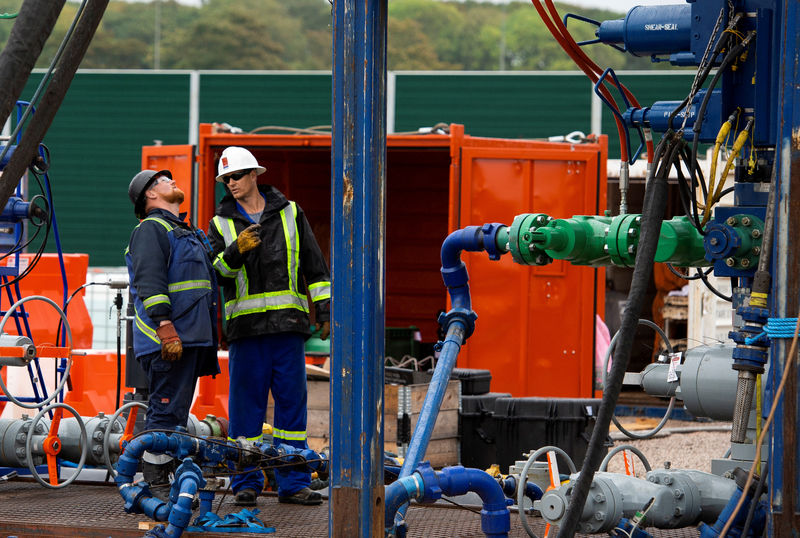By Susanna Twidale
LONDON (Reuters) - Fracking Britain's shale gas reserves could cut the country's imports of gas to zero by the early 2030s, an industry group said on Monday.
Britain currently imports more than half of its gas via pipelines from continental Europe and Norway and through shipments of liquefied natural gas from countries such as Russia, the United States and Qatar.
Environmental groups strongly oppose the practice of hydraulic fracturing, or fracking, which involves extracting gas from rocks by breaking them up with water and chemicals at high pressure.
But the British government, keen to cut Britain's reliance on imports as North Sea gas supplies dry up, last year gave Cuadrilla permission to frack two wells at its Preston New Road site in Lancashire.
Industry group United Kingdom Onshore Oil and Gas on Monday published updated forecasts for the county's shale gas potential in the wake of recent data from Cuadrilla's sites.
The forecasts for well productivity were increased by 72 percent to 5.5 billion cubic feet (bcf) per lateral well, compared with estimates made in 2013 by Britain's Institute of Directors.
One hundred fracking well pad sites, each with 40 lateral wells could produce almost 1,400 bcf a year by the early 2030s, equivalent to the gas use of 35 million homes, the industry association report said. This would be more than the country needs as it has around 27 million households.
But fracking companies say the industry is unlikely to take off in Britain under current regulations, which halt fracking activity if a seismic event of magnitude 0.5 or above is detected.
Cuadrilla, currently the only company to have fracked for gas in Britain, had to halt operations several times last year due to seismic events which exceeded the limit.
British chemical manufacturer Ineos, which has the largest shale gas licence acreage in Britain, has called the current rules unworkable.
The government said it has no plans to review the regulations.
A 2017 study by the Department for Business, Energy and Industrial Strategy concluded that through imports Britain would have secure supplies of gas up until 2037 even if no shale reserves were exploited.
Environmentalists have opposed the development of a UK shale gas industry, and say the exploitation of more fossil fuels is at odds with the country's climate targets.

Britain has a target to cut greenhouse gas emissions by 80 percent by 2050 compared with 1990 levels and is examining whether a net zero emissions target date should be set.